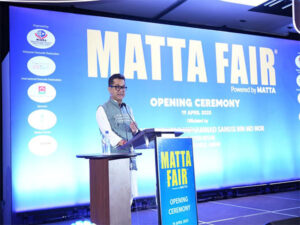Israelis asked to avoid using live chickens in annual atonement ritual
Tel Aviv [Israel], August 28 (ANI/TPS): In preparation for the upcoming Yom Kippur holiday – the Jewish Day of Atonement – Israel’s Ministry of Agriculture and Rural Development emphasized to the public the importance of observing the custom of redeeming atonements with money and not chickens.
In the days between Rosh Hashanah and Yom Kippur, it is customary to observe the custom of “redemption of atonements”. The ceremony is done by using live poultry, with the chicken usually donated to the poor afterwards, but as part of it unnecessary suffering is caused to the animal before it is slaughtered.
Again this year, the Ministry of Agriculture and Rural Development encourages the public to observe this custom with money, not animals, and to donate it to charity. Making atonements by means of monetary redemption is even supported by the greatest rabbis, who called on the public to prefer the redemption of atonements with money in order to prevent the suffering of animals.
For years, the veterinary services have been supporting the conversion of the practice of atonement into monetary redemption, and the use of animals has passed.
The support is backed by the rulings of some of the leading rabbis. Despite the above, there is still a large public that observes the custom of atonement using animals. (ANI/TPS)
Tel Aviv [Israel], August 28 (ANI/TPS): In preparation for the upcoming Yom Kippur holiday – the Jewish Day of Atonement – Israel’s Ministry of Agriculture and Rural Development emphasized to the public the importance of observing the custom of redeeming atonements with money and not chickens.
In the days between Rosh Hashanah and Yom Kippur, it is customary to observe the custom of “redemption of atonements”. The ceremony is done by using live poultry, with the chicken usually donated to the poor afterwards, but as part of it unnecessary suffering is caused to the animal before it is slaughtered.
Again this year, the Ministry of Agriculture and Rural Development encourages the public to observe this custom with money, not animals, and to donate it to charity. Making atonements by means of monetary redemption is even supported by the greatest rabbis, who called on the public to prefer the redemption of atonements with money in order to prevent the suffering of animals.
For years, the veterinary services have been supporting the conversion of the practice of atonement into monetary redemption, and the use of animals has passed.
The support is backed by the rulings of some of the leading rabbis. Despite the above, there is still a large public that observes the custom of atonement using animals.






